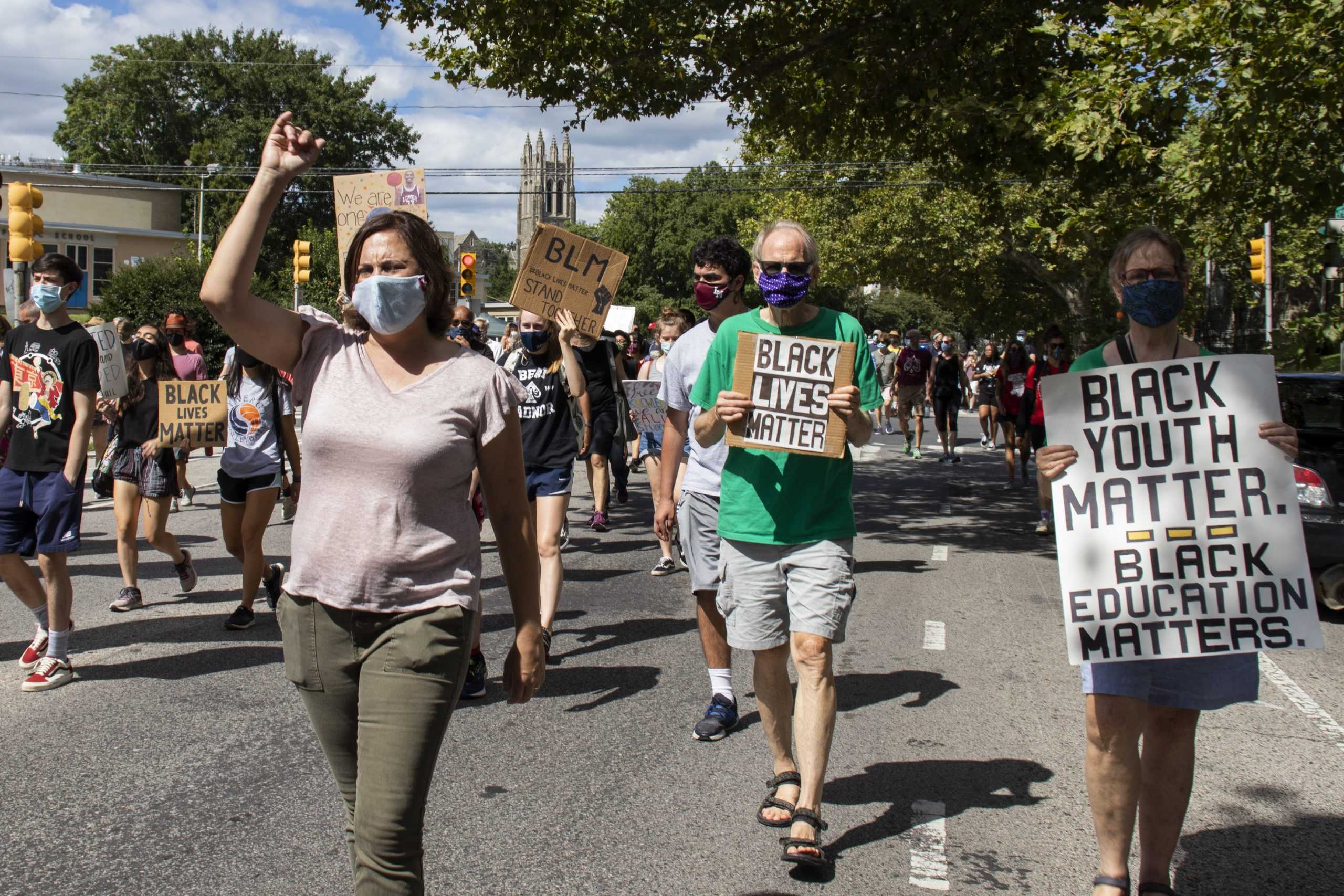The Center for Addiction and Recovery Education (CARE) received a $1.2 million grant from the Pennsylvania Department of Health to educate and train the state’s first responders in the fight against substance abuse and the aid of those in recovery.
CARE was founded at St. Joe’s in November 2019, and will seek to educate and train first responders, conduct addiction research and advocate for effective public policy. This specific grant will be used to fund education and training on the topics of substance use disorder, the use of Naloxone (NARCAN) and destigmatizing and deconstructing implicit bias when engaging persons with addictions.
CARE currently has 13 people who are classified as first responders on their staff, including current or former police officers, firefighters, MS professionals and an attorney. CARE matches trainees with those who served in the same profession in order to introduce a level of relatability in their training, an approach that Inaugural Director of CARE, Steve Forzato, said is crucial to the efficacy of the training.
“They understand the risks of the jobs of these professionals,” Forzato said. “They understand the responsibilities these professionals have. They tend to respect their own. They have what I would call ‘lived experience.’”
Forzato said for some of his trainers, there is an added layer to the work they are doing.
“Some of my trainers are in recovery themselves,” Forzato said. “They have experienced firsthand the [effects of] substance use disorder. These trainers are a unique group of individuals that will have a good positive effect.”
During Forzato’s 31 years enforcing drug laws for the Montgomery County District Attorney’s office, he often interacted with people experiencing substance use disorder. This prompted him to redirect his career to work with police chiefs and emergency medical services (EMS) personnel, encouraging them to rethink substance use disorder as a disease, not a criminal offense. Forzato said he will use his past experiences while implementing CARE training.
“What we’re going to do is train police officers, firefighters and EMS to address the people that they come across that need help and with the knowledge that they can actually help,” Forzato said. “Clearly there’s criminal ramifications to possessing drugs but I ask them to consider linking people to treatment as an alternative.”
CARE partnered with the Hazelden Betty Ford Foundation, a substance abuse treatment and advocacy organization, to outline the curriculum that will be used in the training. Jim Cowser, a supervisor at the Hazelden Betty Ford Foundation, identified two main themes in the education.
“One is knowledge about addiction, about trauma, about what stigma is,” Cowser said. “Then also addressing attitude shifts, so when people learn that information, they’re able to shift their attitude about the stigmatizing components of addiction and mental health issues that we know are sometimes barriers for people.”
Cowser and Forzato both said that the goal of the program is to help first responders bridge the gap between substance abuse and recovery. Cowser added that with frequent interaction between first responders and those recovering from substance abuse, first responders feel as though they are only seeing the damaging side of addiction. CARE training will add a “feedback loop,” so trainees can see how many people they have helped into the process of recovery.
“The first responders can be hopeful that not only are their efforts going to help someone get engaged in care, but [those recovering] are going to be able to stay there and be able to receive the help that they need,” Cowser said. “Many times, first responders are seeing the crisis over and over and over, but they aren’t getting to see people getting better.”
Lou Clark ’70 read about CARE and knew immediately that he had to use his background and experience to help the cause. He previously taught ethics courses at St. Joe’s in the 70’s. With CARE, he will share his own story of substance abuse.
Since his initial contact with Forzato, Clark has been doing more in-depth research about the ethics of dealing with people suffering from substance abuse disorder through contacting medical professionals.
“I’ve learned more and more about recovery,” Clark said. “I realized that there is a gap in the education of medical professionals when it comes to both diagnosing and treating people with substance abuse disorder, so that was of keen interest.”
Clark said people tend to look at substance abuse disorder as a sort of “moral failing,” without understanding that it is a disease which affects certain people and not others.
“Look at a patient compassionately, and try to understand it’s a mental illness that we’re dealing with here,” Clark said. “It is a physical manifestation, but you need to understand [the person] emotionally.”
Looking back on his time at St. Joe’s, Clark said St. Joe’s Jesuit mission makes it the perfect place to house CARE.
“As I was revisiting the material on the philosophy of Jesuit education, I was reminded of the ‘cura personalis,’ the treatment of the whole person,” Clark said. “At St. Joe’s, I think it fits precisely with that. It’s not just what we learn, it’s how we live our lives.”













































